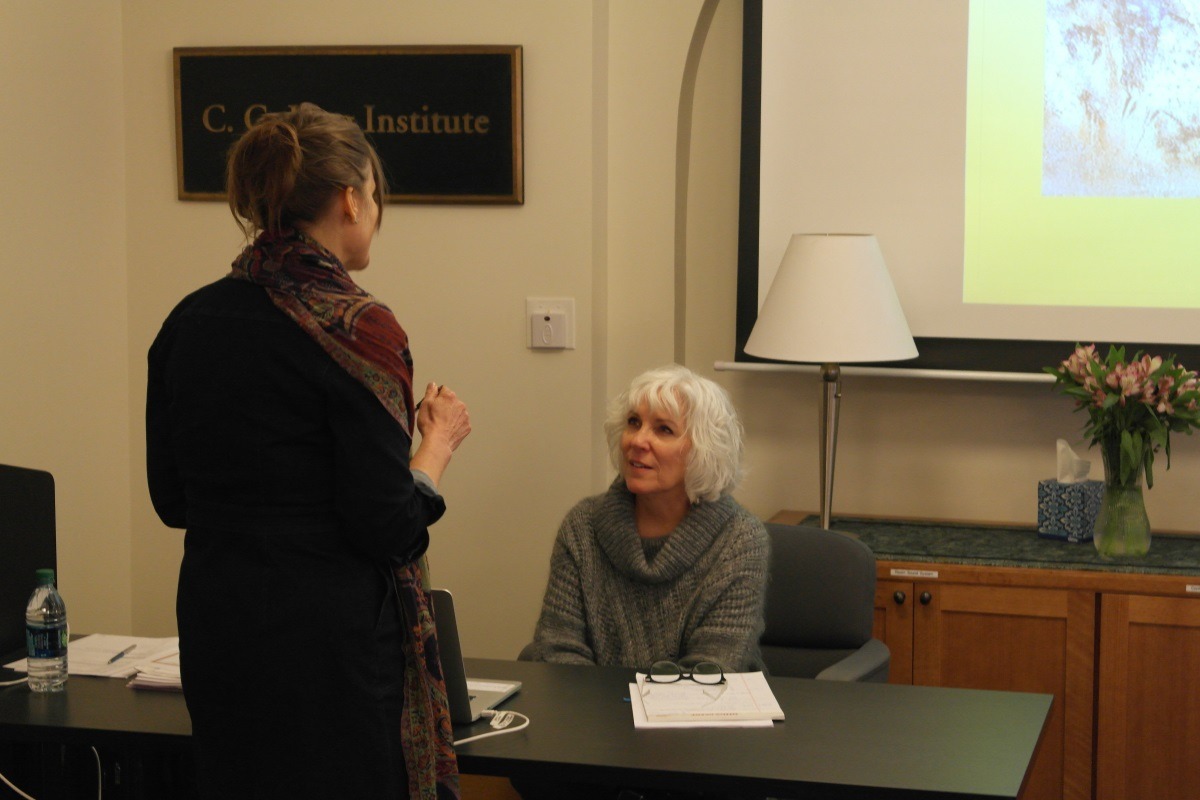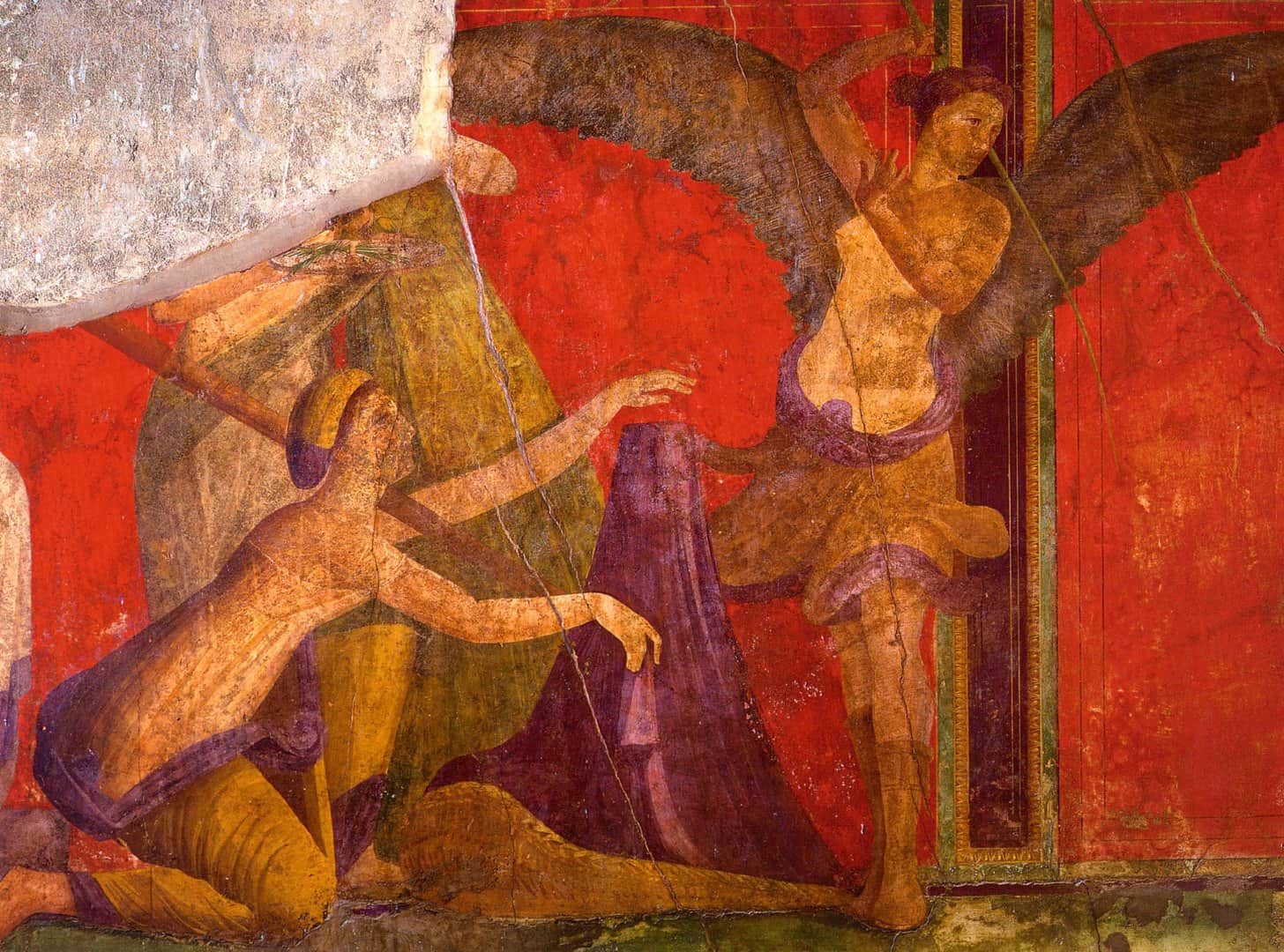› Training Programs › Jungian Psychotherapy/Studies Program
› Training Programs › Jungian Psychotherapy/Studies Program
The Jungian Psychotherapy Program (JPP) and the Jungian Studies Program (JSP) are concurrent two-year programs where participants together study the fundamentals of Jungian theory grounded in experiential learning. The JPP/JSP training year, which runs from October to June, provides learners 144 hours of instruction in Jungian theory, 54 hours of Small Group, and 36 hours of Large Process Group*. Classes are taught primarily by Jungian psychoanalysts, with specialists utilized as needed based on their particular skill set. A clinically-oriented program, the JPP offers licensed mental health and social service professionals an opportunity to enrich and deepen their work through didactic and experiential learning in Analytical Psychology. The JSP, developed for highly motivated professionals in other fields, provides the opportunity to expand and deepen an understanding of Jungian theory and application of Jungian thought. Both programs participate together in theory instruction hours. Small Groups meet separately for each program, with a focus on clinical material for the JPP Small Group Case Consultation, and the JSP Small Study Group grounding the exploration of theory in its embodied expression.
Participants will learn what it means to think and conceptualize symbolically from a Jungian perspective. Coursework in the JPP/JSP will include many fundamental aspects of Jungian theory and practice, for example, dream interpretation, active imagination, sand tray, typology, transference and counter-transference, shadow and persona, the Self, archetypes, the collective unconscious, and the use of mythology and fairy tales in psychotherapy.
Continuing Education (CE) credit is available for coursework and Small Group sessions for JPP students. The Institute is approved by the Illinois Department of Professional Regulation to provide CE credits for psychologists, social workers, marriage and family therapists, and professional counselors. The C. G. Jung Institute of Chicago maintains responsibility for this program and its content.
The JPP/JSP cohort assembles at the Institute in Chicago one weekend a month, October through June, over the course of two years. The programs are designed to make Jungian education available to all qualified applicants. The one-weekend-a-month structure allows training to fit into one’s professional life. Our location in “the Loop” has convenient access to public transportation, both O’Hare and Midway airports, Ogilvie Transportation Center, and Union Station (Amtrak/Metra trains and long-distance buses). All classes and events are accessible.

Who Should Apply
The JPP/JSP was developed for mental health and social service professionals, as well as for individuals with a strong interest in advancing their knowledge of Analytical Psychology. Please consider applying if you:
• Wish to learn Jungian theory in a warm collegial atmosphere that encourages deep personal and experiential learning as well as professional networking;
• Are looking for a continuing education program that will enrich and improve your competences through educational seminars and group process;
• Would like to participate in a stimulating learning environment where the faculty are Jungian psychoanalysts and the participants are professionals from a variety of cultural and educational backgrounds;
• Are interested in a time-limited program that is remarkable in providing education in Analytical Psychology while allowing participants to be employed full-time and, in some cases, to commute long distances.
The JPP is open to licensed clinicians, such as psychologists, social workers, counselors, marriage and family therapists, addictions counselors, physicians, and nurse practitioners, who desire to take their clinical approaches to a deeper level through group case discussion with a Jungian psychoanalyst. JPP applicants must be licensed in the state in which they practice psychotherapy, or must be under supervision for clinical work within an organization. Practicing clinicians must be covered by malpractice insurance, either individually or through an organization.
The JSP is open to professionals such as spiritual directors, chaplains, alternative health care providers, educators, and artists. JSP applicants may have personal, professional, or academic experience with the work of C. G. Jung, or an introductory familiarity coupled with a compelling desire to learn more. People who seek to engage with a community of readers, writers, thinkers, teachers, healers, makers, and others in the exploration of Jung’s contributions to the understanding of the psyche will be in good company here.
All JPP/JSP applicants must submit an application form and fee, 500-word essay, and curriculum vitae. Additionally, JPP applicants must provide current license and insurance documentation. Applicants will complete an interview with the JPP/JSP Co-Directors. See the Apply section for details.
Coursework: Instructional class size is limited. The courses include the history and fundamentals of Jungian theory as well as new developments by post-Jungian analysts, and other aspects of the practice of Analytical Psychotherapy. The following is a list of likely subjects to be covered:

Small Groups: Following the full-cohort exploration of the course material in the morning and afternoon lectures, participants are divided into Small Groups. The relationships among the group members continue to develop for the duration of the two-year program, facilitated by Jungian analysts and psychotherapists. Small Groups are conducted separately for each program: JPP Small Group Case Consultation and JSP Small Study Group. For JPP students, group case consultation allows time and space to apply instructional materials to their clinical practice, personal experience, and the small group process. JPP members are expected to bring their own clinical work to the group for consultation. Through their Small Study Group, JSP students practice the application of Analytical Psychology, taking into account the group’s interests and dynamics. Based on participants’ topical requests and recommendations, skilled facilitators lead participants to explore the manifestations and implications of the course content in their personal and professional lives.
Final Project: In the second year of the JPP/JSP, students are required to write a 30-page paper exploring an area of Analytical Psychology of their choosing.
Faculty for the Jungian Psychotherapy/Studies Programs consists of members of the Chicago Society of Jungian Analysts (CSJA) and highly-regarded guest lecturers. To view the entire list of CSJA Members, click here.
The JPP/JSP meets in-person or on Zoom, one weekend a month, October through June (typically the first weekend of each month).
| Weekend Schedule | |
| Saturday | Sunday |
| 9:00–10:00 | Large Process Group | 8:30–11:00 | Class Session |
| 10:15–12:15 | Class Session | 11:00–12:00 | Lunch Break |
| 12:15–1:15 | Lunch Break | 12:00–1:30 | Class Session |
| 1:15–3:15 | Class Session | 1:40–3:10 | JPP/JSP Small Groups |
| 3:30–5:00 | JPP/JSP Small Groups | 3:20–4:20 | Large Process Group |
• During the Class Sessions, the JPP and JSP students gather for lecture and discussion with the instructors.
• Each day when the program breaks for lunch, students are encouraged to use this time for community building.
• Small Groups are conducted separately for each program: JPP Small Group Case Consultation and JSP Small Study Group.
• In the Large Process Group, the combined JPP/JSP cohort reassembles with the program Co-Directors.
• Participants can remain in contact in the period between the monthly training weekends via a Google Group hosted by the Institute. Syllabi and readings assignments are also distributed online, so participants must have computer/internet access and an e-mail address.
• When class sessions are in-person (Oct-Jan, Apr, Jun), all students are expected to attend in-person. Livestreaming will not be available for in-person weekends.
• When classes are on Zoom (Feb, Mar, May), the schedule will be the same as in-person weekends.
2023-2024 Calendar: The weekends for this coming year are set and can be viewed here: https://teamup.com/ks8654vbknxsi3j41v
Tuition for the 2023-2025 JPP/JSP will be $4,025 per year. At approximately 39 hours per trimester (24 instructional hours, 9 small group hours, and 6 large group hours), this calculates to approximately $34 per hour. Payment can be made in installments.
Continuing Education Credits: CEs are included in the price of tuition for all students. The Institute is approved by the Illinois Department of Financial and Professional Regulation to provide continuing education (CE) credit to psychologists, social workers, professional counselors, and marriage and family therapists. The C. G. Jung Institute of Chicago maintains responsibility for this program and its content. CEs are included in tuition.
Applications for the 2023-2025 JPP/JSP have closed. Applications for the 2025-2027 pcohort will open in Spring 2025.
The JPP/JSP application process is entirely online. Here are the steps:
1) Complete the JPP or JSP application online form
2) Pay the non-refundable $50 application fee
3) Read and e-sign the Character and Fitness Affirmation and Attestation
4) Upload your application materials
• 500-word statement describing your interest in pursuing training in Analytical Psychology
• Copy of your curriculum vitae
• Copy of your licensure in the state in which you are licensed to practice psychotherapy (JPP applicants only)
• Copy of your current malpractice insurance certificate (JPP applicants only)
When you submit your completed application form, you will receive an email inviting you to the next steps in the application process. After we have received all application materials, the final step in the process will be an interview with the JPP/JSP Co-Directors beginning June 5th and June 6th. We will send interview invitations by May 15. Applicants will receive notification of admission by July 1st and are asked to confirm their intention to proceed with JPP/JSP training by August 1st.
If you have any questions about the Jungian Psychotherapy Program or Jungian Studies Program, please contact the Operations Manager.
Operations Manager
Barbara Wahler, LCSW
Email: [email protected]
Phone: 312-701-0401
Yes, we have now moved back to in-person events and the JPP/JSP meets in-person for all training weekends. Please read our Health & Safety Guidelines for In-Person Gatherings for more information about how we are addressing Covid-19.
Please read our Health & Safety Guidelines for In-Person Gatherings for more information about how we are addressing Covid-19.
October – In-Person
November – In-Person
December – In-Person
January – In-Person
February – Online
March – Online
April – In-Person
May – Online
June – In-Person
The JPP/JSP requires in-person attendance to participate in in-person weekends. Livestreaming is not available for in-person classes and group meetings.
In the event that meeting in-person is not an option due to COVID, the entire cohort will meet on Zoom.
CEs are included in the price of tuition for all students.

Certification of the Chicago Society of Jungian Analysts to train analysts is granted by The International Association of Analytical Psychology. The C.G. Jung Institute of Chicago is accredited as a psychoanalytic training institute by The American Board for Accreditation in Psychoanalysis, Inc. The Institute is approved by the Illinois Department of Professional Regulation to sponsor continuing education for Psychologists (License No. 268000106), Social Workers and Clinical Social Workers (License No. 159-000215), Marriage and Family Therapists (License No. 168-000123), Professional Counselors and Clinical Professional Counselors (License No. 197-000022).

This search engine will search our public programs, the Jungianthology Podcast & Blog, and our store.
To search only the store, visit our Store page.
If you’re looking for a Jungian Analyst, use our Find an Analyst search engine or browse the Chicago Society of Jungian Analysts page.